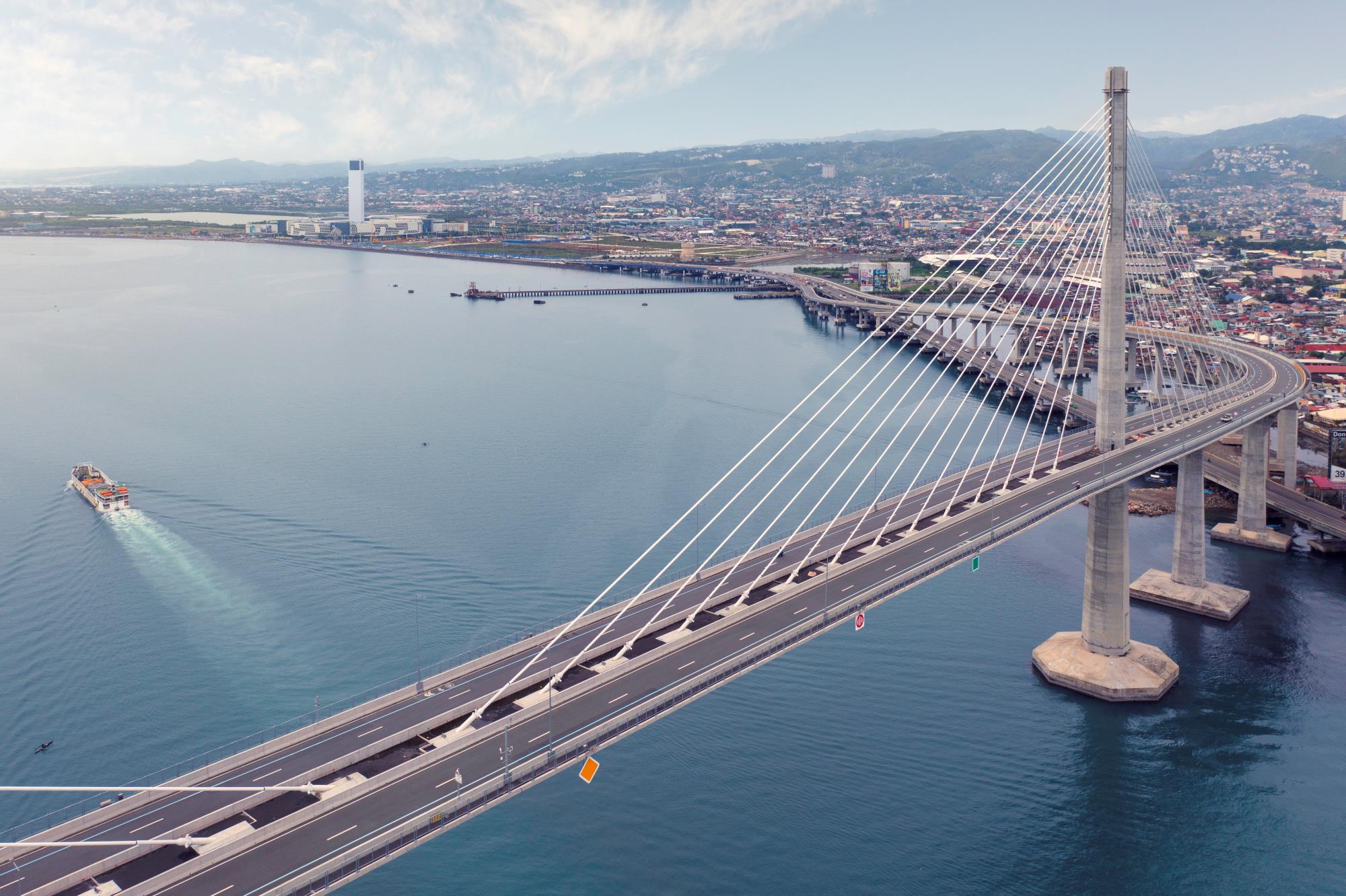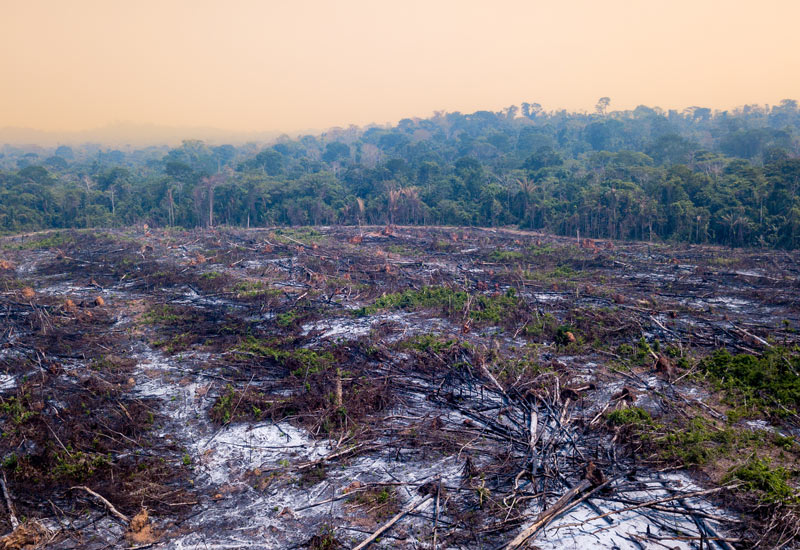Get the right experience for you. Please select your location and investor type.
IMPORTANT NEWS: Transition of investment management responsibilities
First Sentier Group, the global asset management organisation, has announced a strategic transition of Stewart Investors' investment management responsibilities to its affiliate investment team, FSSA Investment Managers, effective Friday, 14 November close of business EST.

Trip report: Putting the Philippines on the map
"When we received the cable from Admiral Dewey telling of the taking of the Philippines, I looked up their location on the globe. I could not have told where those darned islands were within 2,000 miles!1"
President William McKinley, 1898
Around 115 million people currently live in the Philippines, placing it just below Japan and Mexico in the global population league table but ahead of Germany, Turkey and France2. The archipelago contains more than 7,000 islands and has a roughly similar landmass to Italy. Despite this, many investors might, like President McKinley, struggle to find it on a map: companies in the Philippines exhibit low levels of foreign ownership – on average, just 10% of the shares of listed companies are owned by overseas investors3. The valuations of its listed companies are correspondingly modest by global standards4.
Earlier this year, we visited the islands for the first time since the covid pandemic. The local brokers we met during our trip welcomed us enthusiastically, noting that they hadn’t received many overseas investors in recent years. We were encouraged by what we saw and heard during our visit – particularly during our conversations with a handful of long-term stewards.
A large, young and under-served market
The average Filipino is 25 years old – around 19 years younger than the average European5. The productivity advantage this confers should help it to begin to close the income gap to older, richer economies. In 2024, GDP-per-capita in the Philippines was roughly 90% lower than in the EU6. Low penetration rates for basic services mean that some potentially vast markets are as yet untapped. Close to 50% of Filipinos, for instance, don’t have a bank account7. This should not be surprising given that the minimum daily wage in some regions can be as little as USD6 per day (the World Bank estimates almost 17% of Filipinos live on less than USD4.20 per day8) and that it is not uncommon for the Philippines’ ubiquitous ‘sari-sari’ stores – its small, family-owned convenience shops – to break up multipacks into individual units and to extend credit to their customers to enable them to buy basic hygiene products.
The importance of stewards amid corruption and political change
During the covid pandemic, the private sector provided essential help to communities and businesses when they needed it most. One of the companies we met during our visit estimated that 10% of the country’s covid vaccinations were carried out on its premises. The same company suspended rent collections from its business tenants for two years. The goodwill these types of actions helped to create should endure for years.
In some Asian countries, the dominance of family-owned businesses can create resentment. In our experience, this is less common in the Philippines. Indeed, the country’s multi-generational conglomerates can be seen as having provided a reassuring constant and a steadying influence amid years of political strain.
Politics and corruption are issues in the Philippines. One of our local contacts stated that their wish for the Philippines would be to “eliminate corruption”. We do, of course, consider political conditions, which can break an investment case. One of the reasons why we have had relatively few investments in the Philippines until recently was our concern with the country’s approach to policymaking. And while no political system is above criticism, we believe the political situation in the Philippines has become more conducive to investment. This alone, however, does not make the investment case; we need to find high-quality companies with careful stewards.
SM Investments: quiet, politically neutral stewards
In countries like the Philippines, we want to identify companies run by stewards who have consciously refrained from taking sides politically. SM Investments, stewarded by the Sy family, is a good example. In their daily lives, most Filipinos will have a touch point with one of its goods or services. Millions of Filipinos rely on the products and services that it provides in retail (SM Retail), banking (BDO Unibank) and property development (SM Prime). The family, however, are careful not to voice their opinions on politics or politicians. They are deliberately low-key, preferring anonymity to flamboyance. Yet while the Sy family are quiet, they dream big.
SM Prime is currently constructing a 360-hectare property project – Pasay 360 – on a site just south of Manila where there is, at present, no land to build on. For the Sy family, Manila’s urban future relies on reclaiming land from the sea. Perhaps inevitably, the plans initially encountered opposition and achieving the necessary permissions demanded patience. Rather than cutting corners, however, the company’s professional leaders listened to criticism from stakeholders and responded to it fairly and legally. This suggests to us that the Sy family considers that its standing in the wider community matters. We agree: to abuse trust is to lose it.
The Sy family’s approach embodies another characteristic we are looking for in good stewards. We welcome family-owned businesses that reject nepotism and instead employ professional managers to run their day-to-day operations. In the case of SM Investments, the vision, ambition and confidence all belong to the family but the details are looked after by professionals.
By the time Pasay 360 is complete, it will be bigger than Central Park in New York and roughly 10 times the size of Canary Wharf in London. It will have transformed the traffic flow, amenities and quality of life in one of the world’s most densely populated cities, simultaneously contributing to human development and driving financial returns. The Sy family, however, are not the only stewards taking a patient approach to developing the Philippines.
Ayala: democratising credit
Ayala is the holding company for the Zóbel de Ayala family. Its interests span a range of industries, including banking (Bank of the Philippine Islands – BPI), telecoms (Globe) and property (AyalaLand). One part of its portfolio is Globe Fintech Innovations (‘Mynt’), the owner of GCash, a mobile-payment system that has been used by eight out of 10 Filipinos9. Since its launch in 2004, GCash has become so popular that is it has become a verb: “I will GCash you”. It allows Filipinos, including those without a bank account, to transfer cash quickly, securely and cheaply to friends, families, and businesses. We have long believed that increased financial inclusion can be a catalyst for economic growth, poverty reduction, and social empowerment. GCash is convenient and its repeated use by customers helps the company build a detailed picture of its users, allowing it to assemble a picture of an individual’s creditworthiness. GCash is now taking the logical next step by expanding its services to include loan disbursement. It is, in effect, helping to democratise credit.
We are often asked: “Why invest in Asia?” In many ways, the answer can be found in the seemingly lost islands of the Philippines. This is a country in which high-quality companies – controlled by entrepreneurial founding families but run by professional managers – have overcome political disruption and have the long-term vision to transform the lives of millions. We continue to look for companies with the confidence, patience and ambition to invest their capital today to tap into the huge profit pools of tomorrow and to help put the Philippines back on the investment map.
August 2025
Want to know more?
Important Information
This material is a financial promotion / marketing communication but is for general information purposes only. It does not constitute investment or financial advice and does not take into account any specific investment objectives, financial situation or needs. This is not an offer to provide asset management services, is not a recommendation or an offer or solicitation to buy, hold or sell any security or to execute any agreement for portfolio management or investment advisory services and this material has not been prepared in connection with any such offer. Before making any investment decision you should conduct your own due diligence and consider your individual investment needs, objectives and financial situation and read the relevant offering documents for details including the risk factors disclosure.
Any person who acts upon, or changes their investment position in reliance on, the information contained in these materials does so entirely at their own risk.
We have taken reasonable care to ensure that this material is accurate, current, and complete and fit for its intended purpose and audience as at the date of publication. No assurance is given or liability accepted regarding the accuracy, validity or completeness of this material.
To the extent this material contains any expression of opinion or forward-looking statements, such opinions and statements are based on assumptions, matters and sources believed to be true and reliable at the time of publication only. This material reflects the views of the individual writers only. Those views may change, may not prove to be valid and may not reflect the views of everyone at First Sentier Group.
Past performance is not indicative of future performance. All investment involves risks and the value of investments and the income from them may go down as well as up and you may not get back your original investment. Actual outcomes or results may differ materially from those discussed. Readers must not place undue reliance on forward-looking statements as there is no certainty that conditions current at the time of publication will continue.
References to specific securities (if any) are included for the purpose of illustration only and should not be construed as a recommendation to buy or sell the same. Any securities referenced may or may not form part of the holdings of First Sentier Group portfolios at a certain point in time, and the holdings may change over time.
References to comparative benchmarks or indices (if any) are for illustrative and comparison purposes only, may not be available for direct investment, are unmanaged, assume reinvestment of income, and have limitations when used for comparison or other purposes because they may have volatility, credit, or other material characteristics (such as number and types of securities) that are different from the funds managed by First Sentier Group.
Selling restrictions
Not all First Sentier Group products are available in all jurisdictions.
This material is neither directed at nor intended to be accessed by persons resident in, or citizens of any country, or types or categories of individual where to allow such access would be unlawful or where it would require any registration, filing, application for any licence or approval or other steps to be taken by First Sentier Group in order to comply with local laws or regulatory requirements in such country.
About First Sentier Group
References to ‘we’, ‘us’ or ‘our’ are references to First Sentier Group, a global asset management business which is ultimately owned by Mitsubishi UFJ Financial Group (MUFG). Certain of our investment teams operate under the trading names AlbaCore Capital Group, First Sentier Investors, FSSA Investment Managers, Stewart Investors and RQI Investors all of which are part of the First Sentier Group. RQI branded strategies, investment products and services are not available in Germany.
This material may not be copied or reproduced in whole or in part, and in any form or by any means circulated without the prior written consent of First Sentier Group.
We communicate and conduct business through different legal entities in different locations. This material is communicated in:
- Australia and New Zealand by First Sentier Investors (Australia) IM Ltd, authorised and regulated in Australia by the Australian Securities and Investments Commission (AFSL 289017; ABN 89 114 194311)
- European Economic Area by First Sentier Investors (Ireland) Limited, authorised and regulated in
- Ireland by the Central Bank of Ireland (CBI reg no. C182306; reg office 70 Sir John Rogerson’s Quay, Dublin 2, Ireland; reg company no. 629188)
- Hong Kong by First Sentier Investors (Hong Kong) Limited and has not been reviewed by the Securities & Futures Commission in Hong Kong. First Sentier Group, First Sentier Investors, FSSA Investment Managers, Stewart Investors, RQI Investors and Igneo Infrastructure Partners are the business names of First Sentier Investors (Hong Kong) Limited.
- Singapore by First Sentier Investors (Singapore) (reg company no. 196900420D) and this advertisement or material has not been reviewed by the Monetary Authority of Singapore. First Sentier Group (registration number 53507290B), First Sentier Investors (registration number 53236800B), FSSA Investment Managers (registration number 53314080C), Stewart Investors (registration number 53310114W), RQI Investors (registration number 53472532E) and Igneo Infrastructure Partners (registration number 53447928J) are the business names of First Sentier Investors (Singapore).
- United Kingdom by First Sentier Investors (UK) Funds Limited, authorised and regulated by the Financial Conduct Authority (reg. no. 2294743; reg office Finsbury Circus House, 15 Finsbury Circus, London EC2M 7EB)
- United States by First Sentier Investors (US) LLC, registered with the Securities Exchange Commission (SEC# 801-93167).
- other jurisdictions, where this document may lawfully be issued, by First Sentier Investors International IM Limited, authorised and regulated in the UK by the Financial Conduct Authority (FCA ref no. 122512; Registered office: 23 St. Andrew Square, Edinburgh, EH2 1BB; Company no. SC079063).
To the extent permitted by law, MUFG and its subsidiaries are not liable for any loss or damage as a result of reliance on any statement or information contained in this document. Neither MUFG nor any of its subsidiaries guarantee the performance of any investment products referred to in this document or the repayment of capital. Any investments referred to are not deposits or other liabilities of MUFG or its subsidiaries, and are subject to investment risk, including loss of income and capital invested.
© First Sentier Group


